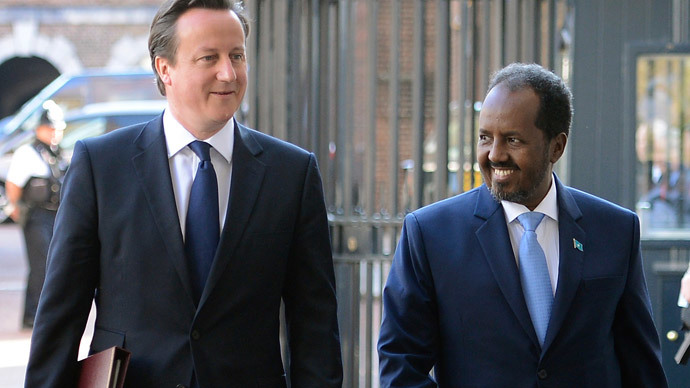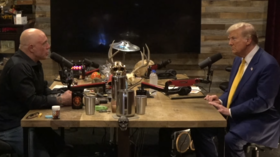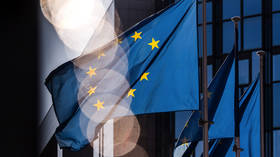Big Oil, corruption & Islamist weapon sales blight UK-Somalia relations – UN

Britain’s relationship with Somalia has come under scrutiny after a report detailing corruption in the east African nation was published by the UN. The Security Council report claims Somalia has traded arms with Islamist militants.
The publication of the document coincides with further questions about the British-Somali relationship after it was reported that a UK firm had obtained licenses from the Somali government to drill for oil.
Green MP Caroline Lucas plans to table questions about the legitimacy of Britain’s ties to Somalia in parliament next month. She is seeking information regarding the government’s response to both allegations of corruption and the UK’s oil investments.
Lucas said the UN monitoring group had “raised some serious concerns” about corruption in Somalia. She voiced anxieties about the “activities that may be undermining the arms embargo, which the UK has formally supported.”
She further expressed a wish “to get the facts into the public domain.”
“The allegations relating to the negotiation of oil company deals with the Somali government and exploitation of loopholes in an arms embargo are deeply worrying.”
The UN report, published on October 10, suggests the Somalia-Eritrea Monitoring Group believe Somali army weapons and ammunition are being diverted onto the open market.
In the report, Musa Haji Mohamed Ganjab, whom the authors claim was acting as an advisor to the Somali president, is condemned for his alleged involvement in arms deals with the militant jihadist group Al-Shabaab.
President Hassan Sheik Mohamud denies any links to Ganjab.
“The man you call Musa, there isn't someone called Musa who is my adviser or has ever been in an advisory position in my office,” the Somali president told France24. “I would have liked the monitoring group to clarify where Musa Haji has ever become an adviser to me.”
Gnajab also denied the allegations.
The claims have cast further doubt upon the behavior of Mohamud, who became president in 2012.

The report said: “Underlying corruption as a system of governance has not yet fundamentally changed and, in some cases, has arguably worsened.
“The monitoring group has consistently found patterns of misappropriation, with diversion rates of between 70 and 80 percent. The indications are that diverted funds are used for partisan agendas that constitute threats to peace and security,” the report added.
The UN Security Council partially lifted the arms embargoes on the country in 2013, despite fears among some members of the council it would exacerbate weapons problems in the country. The sanctions were lifted to allow Somalia to gain arms to fight al-Qaida.
Britain, along with other countries, has pledged millions towards the rebuilding of Somalia.
A Foreign Office (FCO) spokesperson said that the UN Security Council had “tightened the compliance requirements” of the partial suspension, and was urging Somalia to improve its compliance.
“The partial suspension is designed to allow the government to obtain the equipment needed to develop the national security forces, which are critical for Somalia’s long-term security,” the FCO spokesperson said.
Further damage to the relationship comes as a UK firm has reportedly signed a deal for 12 oil licenses in the country, covering 60,000 square meters.
Soma Oil has invested $37 million in a program to gather and digitalize old seismic information and collect new offshore data.
Lucas claims the Somalia-Eritrea Monitoring Group wanted to freeze new oil and gas details pending appropriate constitutional and legislative measures, and will address the support for Soma Oil in her questions.
“We need to know whether that’s a position that the UK government supports in practice, not just on paper,” Lucas said.
The watchdog Global Witness claims that the presence of UK oil businesses could cause more conflict. Barnaby Pace, a campaigner for the group, said more transparency was needed or “concerns will linger over this deal and British policy on oil deals in Somalia.”
The FCO claims the UK government did not lobby in support of an oil deal, and that Soma Oil did not receive any preferential treatment.
Lucas said she planned to ask Foreign Secretary Philip Hammond about specific communications between UK ministers and Somali officials regarding the Soma Oil deal.
The FCO spokesperson maintained the UK only supported “sustainable investment” in the country, which was “in line with Somalia’s wishes.”














